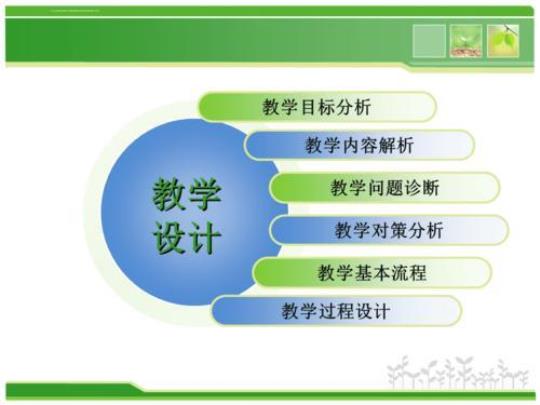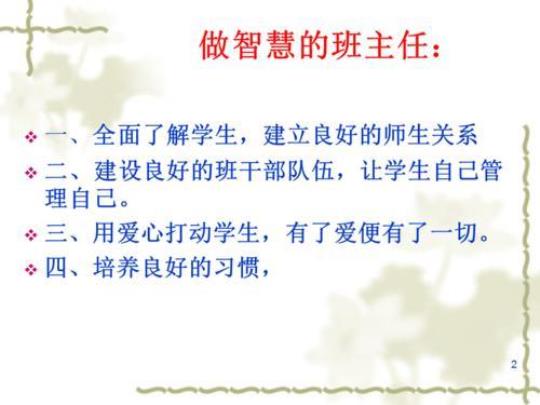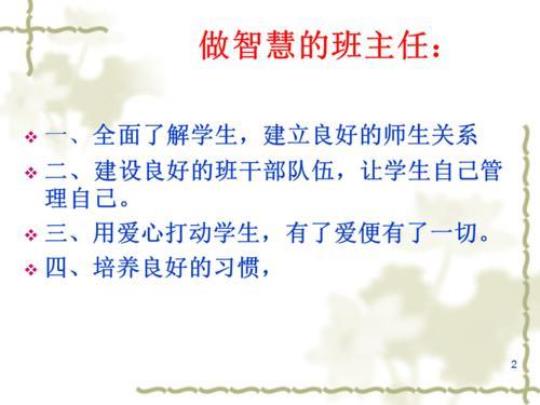高二英语必修五优质课课件优秀10篇

高二变化的大背景是文科和理科的划分(或者说七分之三)。在对各个科目有了初步的了解后,学生需要为自己的未来发展选择和重点选择科目。这可以说是学生第一次在完全掌控自己、未知风险的情况下做出主动选择。这次小编为大家整理了10套《高中英语必修课精品课件》。当您参考它们时,您还可以与您的朋友分享。

高二英语必修五知识点 篇一
1、 impression
n.印痕;印记;印象;感想
常用结构:
have an impression of sth./doing sth. 对(做)某事有印象
make an impression on sb. 给某人留下印象
make no impression on 对……无影响/效果
give sb.a favorable impression 给某人留下好印象
an impression of one’s foot 某人的脚印
Your performance gave me a strong impression.
你的表演给我留下了很深的印象。
What I said made no impression on him.
我的话对他不起作用。
联想拓展
impress v.留下印象
impress one’s mind 把……牢记在心上
2、 lack
v.&n. 缺乏;缺少的东西
注意:lack作名词时,后常接of。lack作动词时,既可作及物动词,也可以作不及物动词,作不及物动词时,后常接for或in。lack不用于被动语态。
常用结构:
lack sth. 缺少某物
lack for sth. 缺少;需要
for/through lack of.。. 因缺乏……
no lack of.。. 不缺乏
a/the lack of 。.。 ……的缺乏
He didn’t go there because he lacked courage.
他没去那里,因为他缺乏勇气。
The plant died for lack of water.植物因缺水而死。
They lacked for nothing.他们无所需求。
联想拓展
lacking adj. 匮乏的;不足的;没有的
be lacking in 缺乏(品质、特点等)
She seems to be lacking in common sense.
她似乎缺乏常识。
3、 sight
n. 视力;视觉;看见;光景,奇观;名胜
常用结构:
lose sight of 看不见;忘记;失去
catch sight of sth./sb. 看见某物/人
at first sight 初看之下;乍看起来
at (the) sight of 一看见就……
out of sight 看不见
be in sight 看得见,在眼前
Out of sight, out of mind. 眼不见,心不烦。
Last summer we had seen the sights of Beijing.
去年夏天我们游览了北京的名胜。
Crusoe was frightened at the sight of a man’s footprint.
克鲁索看到一行人的脚印,他非常害怕。
4、 require
vt. 需要;要求;命令
常用结构:
require that+主语+(should)+动词原形 需要某人做某事
require sb. to do sth. 命令某人做某事
require sth.(of sb.) 要求(某人)某事
I will do everything that is required of me.
凡是要求我的事,我都会办到。
The situation requires that I(should)be there.
形势需要我去那里。
高二年级英语必修五知识点整理 篇二
动词不定式作宾语
以不定式结构为宾语的动词有:
ask, agree, care, choose, demand, decide, expect, fail, help, hope, learn, manage, offer, plan, prepare, pretend, promise, refuse, want, wish等只能用动词不定式作宾语
口诀(接不定式作宾语的动词)
想要学习 早打算( want learn plan)
快准备 有希望( prepare hope wish expect)
同意否 供选择(agree offer choose)
决定了 已答应(decide be determined promise)
尽力去 着手做(manage undertake)
别拒绝 别假装(refuse pretend)
失败不是属于你(fail)
e.g.Tom refused to lend me his pen.
We hope to get there before dark.
The girl decided to do it herself.
高二英语必修五课文知识点分析 篇三
一、过去分词
过去分词兼有动词、副词和形容词的特征,可以带宾语或受状语修饰。过去分词和宾语或状语一起构成过去分词短语。它在句中可以作定语、表语、宾语补足语或状语。这节课讲解作定语、表语的用法。
1. 作定语
作定语的过去分词如果是单词,一般放在被修饰词的前面;过去分词短语作定语,一般放在被修饰词的后面。例如:
There are many fallen leaves on the ground.
This is a book written by a worker.
2. 作表语
过去分词作表语,多表示主语所处的状态。
I was pleased at the news.
The door remained locked.
过去分词作表语,相当于形容词,常见的有:delighted, disappointed, astonished, interested, satisfied, surprised, tired, worried, excited, married 等。
过去分词作表语时,应注意与被动结构的区别。系表结构说明主语的状态或具有的性质、特点;被动结构强调谓语动作。
The small village is surrounded by trees.(状态)
The small village was soon surrounded by enemy soldiers.(动作)
I'm interested in chess.(状态)
3. 过去分词做状语
①表时间,相当于一个时间状语从句,有时过去分词前可加连词 when 或 while 来强调时间概念。
Seen from the top of the hill, the city looked like a big garden.
Accepted by the Party, he decided to devote his life to the cause of the Party.
②表原因,相当于一个原因状语从句。
Exhausted, the children fell asleep at once.
Encouraged by the speech, the young people made up their minds to take up the struggle.
③表条件,相当于一个条件状语从句,有时过去分词前可用 if 等词
Heated, water changes into steam.
Given another chance, he will do better.
④表让步,相当于一个though/although引导的让步状语从句。
Laughed at by many people, he continued his study.
⑤表伴随,说明动作发生的背景或情况。
Surrounded by a group of pupils, the old teacher walked into the classroom.
The trainer appeared, followed by five little dogs.
高二英语必修五优质课课件 篇四
教学准备
教学目标
Teaching Aims
Knowledge a nd Skills:
1. Ge t to know about Canada.
2.Grasp some reading skills.
3.Stimulate the Ss’ interest and love for learning about foreign countries.
Strategy and Method:
1.Train the students’fast-reading ability.
2.Train the students’ ability to co operate with others.
教学重难点
Main points:
1. Introduce the information of Canada to the students.
2.Train the students’reading ability ―skimming,and listening ability
Difficult point:
Learn different reading skil ls for different reading purposes.
Teaching procedures and ways
教学过程
Step1. Readin g&Greeting (2`)
Step2. Leading in and Warming Up (5`)
1.Free talk: Do you like to go sightseeing?
Which country do you like to visit?
What can you see in these countries?
2.Quiz
Step3. Fast- reading (10`)
1.what is“the true north”?
It refers to “the cross-Canada train.”
2.Draw the route of the two girls’ traveling across Canada
Step4. Careful- reading(T&F) (15`)
Step5. Consoli dation (7`)
Listening & Summary
Fill in the blank and retell the story
课后习题
Homework
Surf the Internet to find more information about Canada
Chalkboard Designing
Unit5Canada C the “the true north”
-----A thip “ on the true north”
Vancouver Rocky Mountains Thunder Bay
Calgary Lake Superior Toronto
高二英语必修五优质课课件 篇五
教学准备
教学目标
1.引导学生通过上下文理解生词的含义:
anecdote, annual, witness, accommodation, shore, yell, pack, flee, drag, depth, lip, tongue, abandon, relationship, help out
2.帮助学生掌握文中一些描述事物和情景的生动手法,从而体会作者的思想情感,把握文章的精髓。
3帮助学生通过两个故事,对生活在大洋的虎鲸能有更多的了解,同时对虎鲸给予我们人类忠实的帮助产生由衷的感激,从而加强动物保护和环境保护意识。
教学重难点
1.引导学生通过上下文理解生词的含义:
anecdote, annual, witness, accommodation, shore, yell, pack, flee, drag, depth, lip, tongue, abandon, relationship, help out
2.帮助学生掌握文中一些描述事物和情景的生动手法,从而体会作者的思想情感,把握文章的精髓。
3帮助学生通过两个故事,对生活在大洋的虎鲸能有更多的了解,同时对虎鲸给予我们人类忠实的帮助产生由衷的感激,从而加强动物保护和环境保护意识。
教学过程
Step1 Lead Cin &Warming-up(5mins)
问题导入――教师呈现问题和图片
T: Have you seen plants andanimals that live under the sea? Where did you see them? What’s this? Yes,they’re killer whales. How much do you know about them? I’ll show you a shortvideo.
【意图说明】在读前这个环节,通过几个问题,激发学生原有的对海洋生物的知识储备,再展示一些相关的图片,认识一些常见海底动物的英文名称。最后出现虎鲸的形象,以抛出问题What’sthis? How much do you know about them?来引出今天阅读的主角――虎鲸。先播放一段视频――“虎鲸捕猎”的场面。
Step2 Pre-reading (Predicting)(2mins)
T: Now please look at the title“Is Old Tom an old man?” Right, it’s notan old man. It’s the name of a killer whale. Here are two pictures of thekiller whale. Can you guess what happened to him?
【意图说明】标题导读是指导英语阅读的重要方法。通过解读题目,观察文中的插图,让学生预测故事的内容,这样更能激起他们的阅读兴趣。
Step3 While-reading (28mins)
Task 1 Fast-reading(3mins)
What’s the main idea of the passage? Read the passage quickly and completethe following sentences.
The text consists of two ________written by Clancy.They are mainly about how Old Tom helped the whalers ________a whale and savedJames from the _______.
Explain new words:
anecdote: short, usuallyamusing story about a real person or event
【意图说明】采用完成句子的形式来给出文章的大意,这样很大程度上降低了难度,可以让更多的学生能够完成,从而产生成就感。
Task 2 Careful-reading(3mins)
Read the first story again and finish the chart.
Fill in the blanks.
【意图说明】训练学生寻找细节信息的阅读技能,同时突出本课的生词和短语。要求学生不看书来完成,这样更具有挑战性。
Task 3 Discussing and Speaking(5mins)
Discuss in pairs and answer the following questions.
What’s the relationshipbetween Old Tom and the whalers?
【意图说明】活动2的填表活动只是帮助学生对故事主要情节有大概的了解,而这个环节的提问是为了帮助学生进一步读懂文章,对文章有更深的理解和思考,培养他们的批判性思维,使他们能够正确对待动物与人类之间的关系。
Task 4 Read the second story again and finish the chart.(2mins)
Fill in the blanks.
Task 5 Discussing and Speaking(15mins)
Read the second story and answer the following questions:
1. How did Old Tom help James?
2. As far as you know , what other animals everhelp out human beings in history?
【意图说明】这里给学生时间去交流他们所知道的动物救人的奇闻轶事,然后请个别小组来汇报讨论结果,与全班同学来分享故事。如果学生知道的不多,教师可让他们阅读以下三个小故事。
(公元前5世纪,古希腊历史学家希罗多德记载过一件奇事:音乐家阿里昂乘船返回希腊时,水手们意欲谋财害命。阿里昂乞求水手们允诺他演奏生平最后一曲。他奏完乐曲就跳入大海,一头海豚游过来驮起这位音乐家,将他送到了伯罗奔尼撒半岛。
有一个车老板赶着马车从山上往山下走,这时辕马的套掉了,老板俯下身想拣起来,没想到穿在身上的棉大衣被压在车轮底下,将人带了下去。在这千钧一发之际,辕马一口将车老板叼起,随着巨大的惯性向山下跑去,一直跑到安全地带,车才慢慢停下来,把人轻轻放下,这时马跑了一身汗。”战兽医师说,“这个老板心地非常善良,平时与马很有感情,从来不打马,这次有难,是马救了他。
” 1999年《哈尔滨晚报》登载了这样一条新闻:黑龙江省阿城市有一个聋哑人,有一天坐在火车道上,当火车路过这里时,怎么鸣叫他也听不见。这时,在路边吃草的一只山羊见到了,它拼命地跑了过来,用角把这个人推出了道轨,而它来不及躲避,不幸壮烈牺牲。)
3. What conclusion can we come to after weshare these stories?
【意图说明】通过交流几个动物救人的感人故事,学生会由衷地产生对动物的喜爱和感激之情,会认识到大自然的一切,我们都要感恩,都要爱护,我们与动物要和谐相处,世界才会更美好。
Step4 Languageappreciation(10mins)
【意图说明】接下来这个环节是要引导学生学会鉴赏文章中语言的美,这也是本节课的一个重点部分。学生可根据自己的真实想法,给出他们认为写的精彩的句子,以及给他们留下最深印象的场面。
In the first story, which sentences do you thinkbest describe the scene of the whale hunt and the actions of Old Tom? In thesecond story, what scene impresses you most?
在学生各抒己见之后,教师可着重分析以下几个句子。
We ran down to the shore in time to see an enormousanimal opposite us throwing itself out of the water andthen crashing down again.
我们及时赶到岸边,看到对面有一个庞大的动物猛力跃出水面,然后又坠落到水里。
throwing itself out of the water形象地表现了鲸跃出水面的动作。throw的用法很灵活,能表达出丰富的含义。如:
I felt discouraged when he threw cold water on myidea.
他给我的想法泼冷水时,我感到很沮丧。
She threw herself into a chair and began to cry.
她倒在椅子上,哭了起来。
The fire threw hundreds of workers out of work.
大火使几百个工人失业。
…when we approached him, I saw James being firmly held up in the water by Old Tom.
当我们靠近他的时候,我看到老汤姆在水中正稳稳地托着詹姆斯。
Step4 Homework
1. Surf the Internet andlearn more about the killer whale and other marine animals.
2. Try to retell the story using your own words.
高二英语必修五知识点归纳 篇六
句子成分的省略
为了避免重复,或者为了使某一内容引人注目,可以省略某些句子成分而保持句子原意不变。
1.省略主语
Beg your pardon.请你原谅。(= I beg your pardon.))
Serves you right. 你活该(= It serves you right.)
2.省略谓语
Anything the matter? 要紧吗?(= Is anything the matter?)
The river was deep and the ice thin. 河很深,冰很薄。
(= The river was deep and the ice was thin.)
3.省略表语
Are you ready? Yes,I am.(am 后面省略了表语 ready)
4.省略宾语
We have to analyze and solve problems. (analyze 后省略了宾语 problems)
Let's do the dishes. I'll wash and you'll dry.(wash 和 dry 后面省略了宾语 dishes)
5.省略定语
He spent part of the money, and the rest he saved.(the rest 后面省略了定语 of the money)
6.省略状语
(Even)The wisest man cannot know everything.
高二年级英语必修五知识点 篇七
1.hide sth.from sb.
隐藏某物不让人发现;对某人隐瞒某事
2.come to an end 完结
3.put an end to 结束,终止
4.bring. 。 。to an end 使…结束
5.in the end 终于;最后
6.date back to=date from 追溯到,开始于
7.dress up 装扮;打扮
8.dress up as. 。 。 装扮成…
9.dress up in red 穿上红色的衣服
10.dress sb.(oneself) 给某人穿衣
11.be dress in white 穿着白色衣服
12.make. 。 。with. 。 。 用…在…做标记
13.make. 。 。on. 。 。 在…上做…记号
of 由…组成;由…构成
15.give up 放弃
16.give away 赠送
17.give back 归还;恢复健康
18.give in to向… 让步,屈服于
19.give off 发出,放出(气体,气味等)
20.give out 分发(试卷等),筋疲力尽
高二英语必修五语法知识点 篇八
【现在完成进行时】
1、 现在完成进行时的定义
现在完成进行时表示某动作从过去某个时间开始,一直延续到现在,并且还有可能持续下去。如:
We have been waiting for him for two hours. 我们等他等了两个小时。
2、 现在完成进行时的结构
现在完成进行时由“have /has been + 现在分词”构成。
3、 现在完成进行时的应用
现在完成进行时所用的时间状语:this month / week / year, these days, recently / lately, in the past few + 时间段, since +时间点, for + 时间段。如:
They have been building the bridge for two month. 两个月来他们一直在修桥。
They have been planting trees this month. 这个月来他们一直在植树。
4、 现在完成进行时与现在完成时的区别
(1) 现在完成时强调动作的完成,而现在完成进行时强调动作的延续,因此,表示动作的完成,只能用现在完成时,而不能用现在完成进行时。如:
He has changed his idea. 他改变了想法。
(2) 在表示动作的延续时,虽然既可用现在完成时,也可用现在完成进行时,但现在完成进行时强调动作的进行。因此在需要明确表示动作还要持续下去时,应用现在完成进行时。如:
We have been studying here for two years. 我们在这儿已经学习了两年了。
(3) 有些延续性动词(如 keep, learn, live, stay, study, work等),用于现在完成时或现在完成进行时的区别不大。如:
I have lived here for many years.=I have been living here for many years. 我在这儿住了多年了。
高二英语必修五知识点归纳 篇九
祈使句的反义疑问句
(1)祈使句的反义疑问部分为肯定形式,要用shall,will。如:Pass me the book,will you?
(2)Let’s表示第一人称的祈使句,反义疑问句为“Shall we?”。如:Let’s go for a walk,shall we?
(3)Let me和Let us 表示第二人称的祈使句,反义疑问句为“will you?”。如:Let us go for a walk,will you?
(4)其它行为动词引起的〈WWW.CHAYI5.COM〉祈使句,无论其陈述部分是否定还是肯定的祈使句,多用“will you?”,表一种客气的语气。如:Listen to me,will you?
但在肯定的祈使句后有时也用“won’t you?”表“提醒对方注意”或表“邀请”。如:Have a cup of coffee,won’t you?
祈使句的反义疑问句形式
(1)Let's表示说话人向对方提出建议,简短问句的主语用we表示,问句用shall we或shan't we。如:Let's have a cup of tea,shall we(shan't we)
(2)Let me或 Let us表示听话人提出请求,问句用will you或won't you.如:Let me have a rest,will you(won't you).
注意:回答Let's~的反义疑问句句型时,肯定时用Yes,let's.否定时用NO,let's not.
(3)其它的祈使句后可以加一个简短问句,使语气变得客气一些。如:Have a rest,will you.
高二英语必修五知识点 篇十
【重点句型】
1、 Remove clothing using scissors if necessary unless it is stuck to the burn.
除非衣服粘贴在烧伤面上,否则都要把衣服脱掉。如果需要的话,可以使用剪刀。
unless是连词,意为“如果不,除非”。在真实条件句中,unless引导的肯定条件状语从句,可以和if.。.not.。.引导的否定状语从句互换。
Unless you change your mind,I won,t be able to help you.
=If you don?t change your mind,I won ’t be able to help you.
除非你改变想法,否则我不能帮助你。
I want you to keep working unless I tell you to stop.
=I want you to keep working if I don’t tell you to stop.
如果我没说让你停,你就得继续干。
注意:unless 不可用于假想的事情,因此当if.。.not引导非真实条件状语从句时,一般不可改用unless。
读书破万卷下笔如有神,
想了解更多文章资讯 ,请关注我们标准下载网
* 声明:资源收集自网络或用户分享,版权归原作者所有。
-

幼儿园课件(精选3篇)
文档下载 12-26 -

小学语文课件:《草虫的村落》(优秀2篇)
文档下载 12-25 -

八年级数学说课稿和课件(优秀9篇)
文档下载 12-25 -

说课比赛活动方案
文档下载 12-21 -

最新人教版小学数学五年级下册电子课本精选5篇
文档下载 12-20 -

食品安全课件ppt班会
文档下载 12-18 -

最新班主任工作经验交流ppt课件一等奖(优秀5篇)
文档下载 12-13 -

班主任工作经验交流课件优秀5篇
文档下载 12-12 -

读狼和鹿的故事心得笔记
文档下载 12-12 -

一年级语文下册鲁班和橹板第一课时PPT课件北京版
文档下载 12-11 -

两位数乘两位数复习课件PPT苏教版
文档下载 12-05 -

二上一-四单元教案公开课教案课件教学设计资料
文档下载 12-01